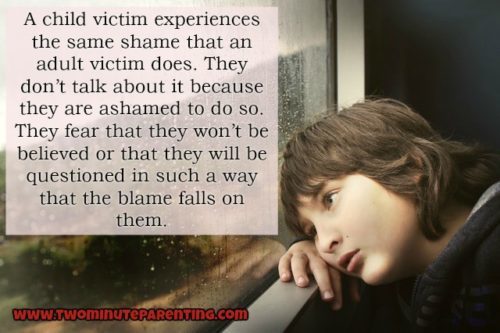I was 12. A yoga teacher used to come to our house once a week. He was known to my grandmother, the reason my parents trusted him. He used to teach me upstairs while my parents did the household chores.
I didn’t like the way he used to touch me. ‘Inappropriately’ wasn’t a word in my vocabulary. I remember being uncomfortable and scared. He used to grab my breasts to lift the upper part of my torso for an asana. It was traumatic because I wasn’t completely sure if it was wrong or right? I was still a child; was scared of telling my parents, worried that they might think I am a bad person for thinking so. Soon, I started making excuses for not wanting to practise and then one day I convinced my parents that I didn’t want to do it. I was glad it ended but that experience continued to trouble me.
When an episode on child sexual abuse aired on the show Satyamev Jayate, my parents didn’t let me watch it. But thanks to the Internet, I later watched it on my computer. I was in tears after watching it and later I was scared. I speculated the horrible outcomes that could have been possible if I hadn’t made the excuse that day. But I still couldn’t muster up the courage to tell my parents.
A few years later when I went to college, I came across several such stories while chatting with my friends one day. Someone’s teacher had tried to feel them up when they were alone in a classroom; someone’s uncle touched them inappropriately on a family visit while someone was molested in his dorm room. It was the first time I opened up. That discussion made me think how common child abuse is and how it never comes up. A few days later, when there was a discussion going on in the family about the yoga teacher, I blurted it out in front of my mother. Recalling it after so many years, still made me cry. My mother asked me why I hadn’t told her before. I said that I was scared.
So why is it that children don’t complain about it? In the December 2010 issue of Psychiatric Times, Richard Kluft lists several reasons including incomprehension, shame, fear of retaliation and victim blaming. Almost every day we come across headlines reporting the inhuman cases of rape of children and even babies who are less than a year old. This is a list of possible reasons why children don’t talk about abuse.
1. Not Being Able To Comprehend
Lack of ‘Age-appropriate sex education’ creates a situation where children are often confused about what an improper behaviour or action is. They are often deceived by their molesters into believing that it was not a bad thing and that they are over-reacting. A lot of times they don’t even realise that they are being abused.

2. Fear of betrayal
Some perpetrators trap their victims by forming a close friendship with them. They lure them with treats. Since children are not able to comprehend the actions, they think that it is okay to accept the gift. Later they fear that if they confessed, they will be charged with betrayal. This happens mostly with very young children.
Also read: Sexual Abuse: A Special Need Mother’s Worst Nightmare!
3. Threat
Many molesters use threat as a weapon to control their victims. They threat them of harming or killing a close family member or friend if they do not co operate. They trick the victim into believing that he/she is responsible for her family member’s safety! In such cases the abuse doesn’t remain just sexual or physical, it escalates into an emotional or mental trauma for the child and even after it stops, it can take them years to come to terms with.
4. Shame
A child victim experiences the same shame that an adult victim does. They don’t talk about it because they are ashamed to do so. They fear that they won’t be believed or that they will be questioned in such a way that the blame falls on them. For children there is the shame of the source of knowledge. Since we are reluctant to give sex education to our children, they often gather information from various secondary from the Internet. They fear that if they explained about the abuse to their parents, the parents will accuse them of viewing inappropriate material.

5. Family loyalty
Many perpetrators of child abuse are close family friends or relatives. In such cases the perpetrators become more powerful because they have the trust of the parents and an easy access to the child. Children fear of being accused of lying because the adult members of the family are trusted more. Often parents keep quiet even after knowing about the incident in order to preserve familial ties and uphold the family name.
Also read: Sex Ed And Your Child With Special Needs: A Practical Guide For Parents
6. Loss of memory
Psychologists find that many victims zone out when confronted with the memory of the incident. They cannot recall it because the pain of that memory is hard to bear. But the memory is present in the subconscious and causes various complications in the future. This causes permanent damage to the mental health of the victim.
Child sexual abuse is a REALITY and we can’t escape it. The danger lies everywhere. From the school to the hobby classes as well as at home. The child is not safe anywhere and you we can’t be with them 24X7. So it’s best to educate them, empower them and talk to them openly about good touch/bad touch and what should they do in case they find themselves in such a situation. Give them quick guide in the form of steps to follow when there is such a need. A popular video tells children to first Shout, then run and later tell an adult they trust. Similarly you can make such a quick guide and revisit it every six month with your child.
The truth is that lack of conviction in case of sexual abuse, give more power to the perpetrators. We need to collectively address this issue. As a society we need to educate our children and remove the social stigmas. As parents we need to talk to our children, make ourselves more approachable and help them, instead of blaming them.
The CHILDLINE helpline number in India is 1098. They offer immediate help in case of emergencies and also offer long term care and rehabilitation.
Edited By: Deepa Garwa






